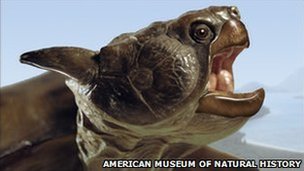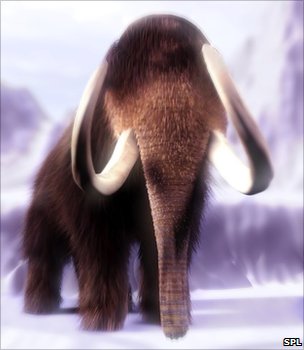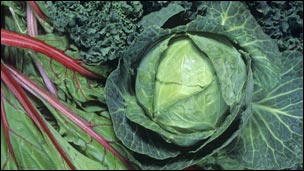Login form
Science
Dark chocolate can be good for the heart, study says
 Older women who eat dark chocolate once or twice a week could be lowering their risk of heart failure, says a
Older women who eat dark chocolate once or twice a week could be lowering their risk of heart failure, says a
It found those eating chocolate once or twice a week cut the risk of developing heart failure by a third, but those eating it every day did not benefit.
The
Dieticians say eating chocolate too often can be damaging and unhealthy.
Giant turtle's demise the fault of humans, study says
 Humans helped drive a species of giant turtle to extinction almost 3,000 years ago, according to a study in PNAS.
Humans helped drive a species of giant turtle to extinction almost 3,000 years ago, according to a study in PNAS.
It is one of the first cases that clearly shows that humans played a role in the demise of the giant, extinct animals known as "megafauna".
An Australian research team discovered turtle leg bones - but not shells or skulls - on an
The bones date to just 200 years after humans' arrival, suggesting they were hunted to extinction for their meat.
Black hole mystery unveiled by magnetic star discovery
 The discovery of a rare magnetic star - or magnetar - is challenging theories about the origin of black holes.
The discovery of a rare magnetic star - or magnetar - is challenging theories about the origin of black holes.
Magnetars are a special type of neutron star with a powerful magnetic field.
They are formed by gravitational collapse after the original, or progenitor star, dies and forms a catastrophic supernova.
For this newly discovered magnetar, astronomers calculated that the mass of the progenitor must have been at least 40 times greater than that of our Sun.
Woolly mammoth extinction 'not linked to humans'
 Woolly mammoths died out because of dwindling grasslands - rather than being hunted to extinction by humans, according to a
Woolly mammoths died out because of dwindling grasslands - rather than being hunted to extinction by humans, according to a
After the coldest phase of the last ice age 21,000 years ago, the research revealed, there was a dramatic decline in pasture on which the mammoths fed.
The woolly mammoth was once commonplace across many parts of
It retreated to northern
Green leafy veg 'may cut diabetes risk'
 A diet rich in green leafy vegetables may reduce the risk of developing diabetes,
A diet rich in green leafy vegetables may reduce the risk of developing diabetes,
In an analysis of six studies into fruit and vegetable intake, only food including spinach and cabbage was found to have a significant positive effect.
A portion and a half a day was found to cut type 2 diabetes risk by 14%, the British Medical Journal (BMJ) reports.
